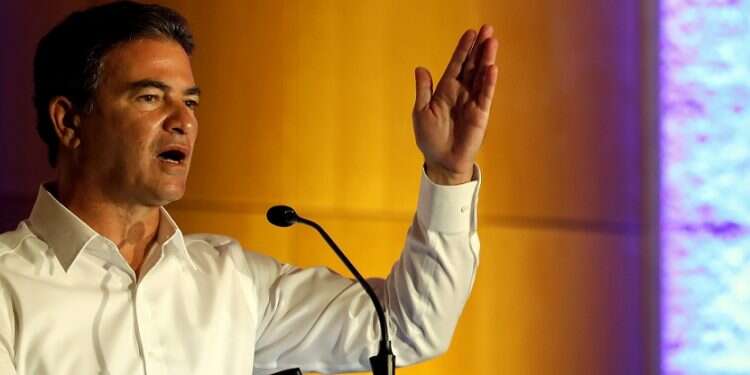Israel and US-aligned Arab countries have a unique chance to forge a regional peace deal given their shared worries about Iran, the chief of Israel's Mossad spy service said on Monday.
In a rare public appearance, Yossi Cohen said his agency had formed a task force designed to spot peacemaking opportunities in a region where only two Arab states, Egypt and Jordan, have full diplomatic relations with Israel.
Follow Israel Hayom on Facebook and Twitter
"The Mossad today recognizes a rare opportunity, perhaps for the first time in Middle East history, to arrive at a regional understanding that would lead to a comprehensive peace accord," he told the Herzliya Conference, an annual international security forum that is located near Tel Aviv.
"Common interests, the fight against rivals such as Iran and jihadist terrorism, the close relations with the White House, and channels of communication with the Kremlin all combine to create what might be a one-time window of opportunity," he said.
The United States convened Arab and other dignitaries in Bahrain last week to encourage investment in the Palestinian economy that might help renew peace talks with Israel.
The Palestinians, seeing a pro-Israel bias in the White House, boycotted the Manama meeting. Israel, which sent only a non-official delegation, saw in the event a chance to bolster its wider ties to the Arab world.
Cohen, whose speech alluded to the Palestinians only in the context of threats against Israel from the armed factions, said many Arab countries "cannot stand Iran's thuggish behavior."
He cited Iran's nuclear program, assistance for guerrillas in Lebanon, Syria, Yemen and elsewhere, and responsibility for a recent spate of sabotage strikes on oil tankers in the Gulf. Iran denies any role in those incidents.
Rapprochement push
Cohen said Israel's warming of relations with Oman, which Prime Minister Benjamin Netanyahu visited last October, followed "a lengthy covert effort by the Mossad" to seek out closer ties.
He pointed to what he termed as "an expanding group of responsible, serious countries" – which he did not name – in the region that have channels of communication with Israel despite no formal relations, and cooperate with it in various ways.
Foreign Minister Yisrael Katz made a rare visit to Abu Dhabi, which does not have official ties with Israel, for a two-day UN climate meeting on Sunday and Monday. While there, he met with an unnamed Emirati official to discuss bilateral ties as well as the Iranian threat, his office said.
Iran announced on Monday it had amassed more low-enriched uranium than permitted under its 2015 deal with major powers, its first major step in violation of the deal since the United States pulled out of it more than a year ago.
Cohen reaffirmed Israel's policy that it would not allow Tehran to get a bomb. "The Mossad or the State of Israel did not sign the nuclear deal [and] will do everything to ensure that Iran will never have nuclear weaponry," he said.
Iran denies ever seeking to acquire a nuclear bomb.
"Currently, it's about uranium enrichment at a relatively low percentage, and in amounts that are not large. The threat is to step up enrichment and increase the amounts," Cohen said, speaking before news of the enrichment breach.
"Just imagine what will happen if the material stockpiled by the Iranians becomes fissionable, at military-enrichment grade, and then an actual bomb. The Middle East, and then the entire world, will be a different place. Therefore, the world must not allow this to happen."




